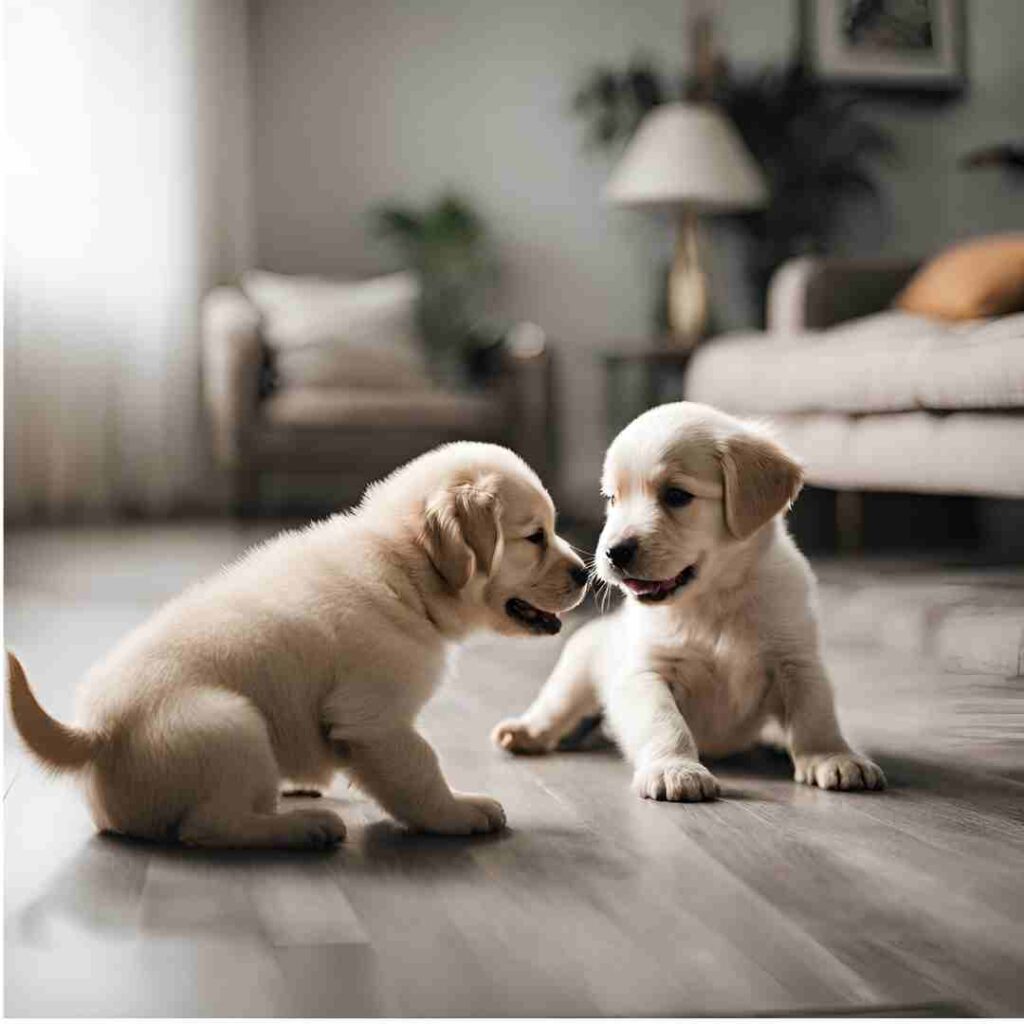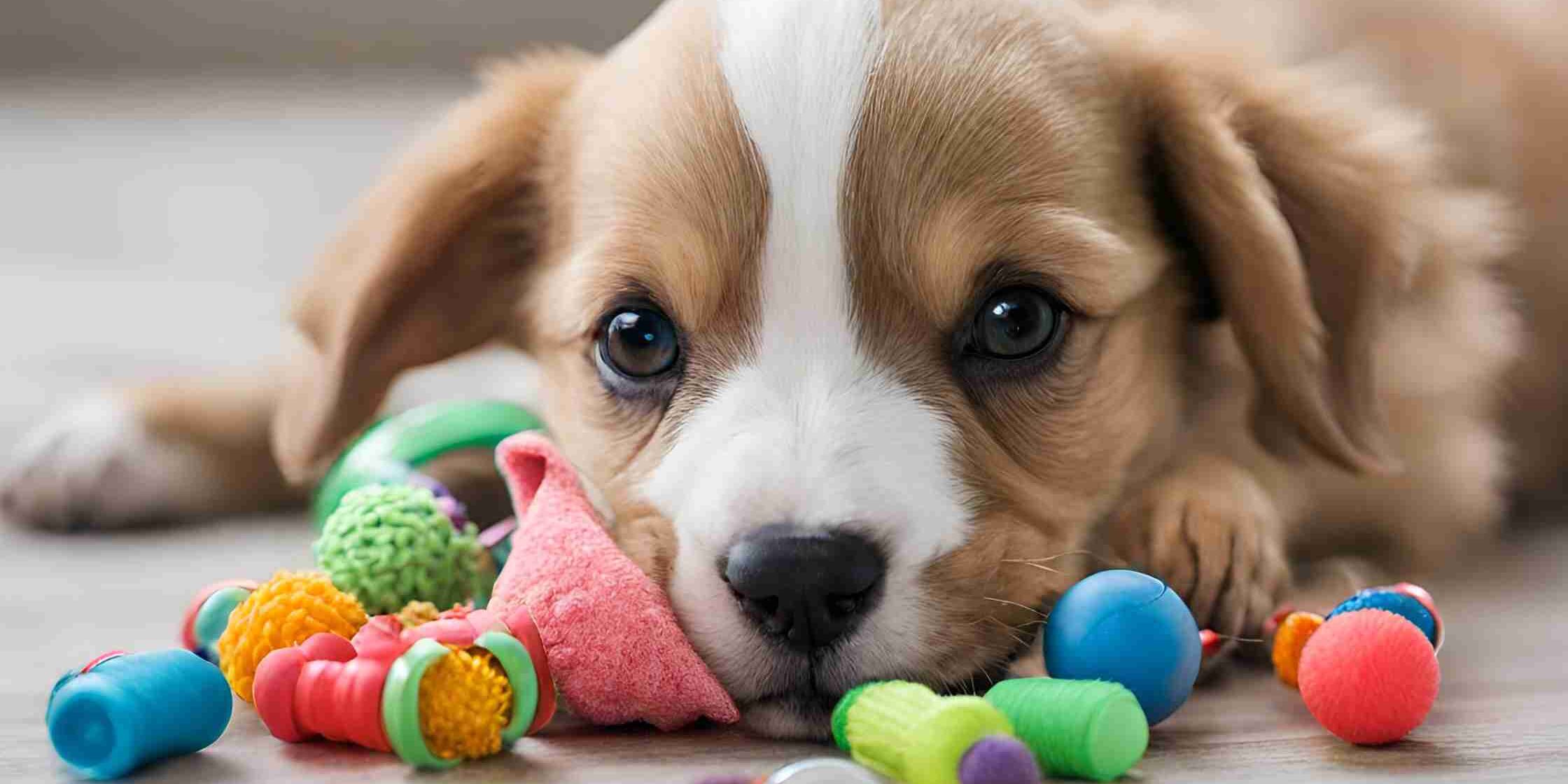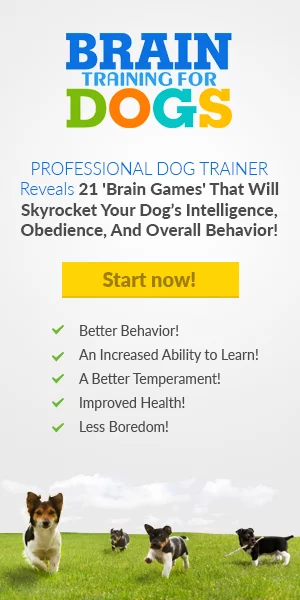Starting off with a new puppy can be an exciting adventure, but it may come with a less adorable habit: puppy biting. It’s natural for your pup to nibble, chew, and even have the occasional nip—it’s how they explore the world. However, it’s important for you to teach your furry friend to moderate their biting behavior. This not only protects you and your belongings but also ensures that your puppy grows up to be a well-mannered dog.
Understanding why your puppy bites is the key to correcting this behavior. Puppies experience teething pain, and biting can be a way to relieve it. They also use their mouths to interact with their environment and to play. By offering suitable chew toys and engaging in positive training, you can help redirect this behavior into more acceptable outlets. Patience (and maybe a pair of thick socks for those tiny teeth) will go a long way as you work together on this behavior.
Being consistent with training and setting clear boundaries is crucial in teaching your puppy what is and isn’t acceptable to chew on. Remember to lavish praise and offer treats when they choose a chew toy over your hand, reinforcing good behavior. In cases where you feel overwhelmed by persistent biting or if your puppy’s biting appears aggressive, seeking professional help from a dog trainer or behaviorist can contribute to a positive outcome for you and your puppy.
Key Takeaways
- Offer chew toys to redirect biting from hands and furniture.
- Praise and reward your puppy for non-biting behavior.
- Follow a structured and trusted training program.
- Seek professional guidance if biting persists or is aggressive.
Understanding Puppy Biting Behavior
When your adorable puppy starts to nip and chew on your fingers, it’s not out of malice but a natural instinct. Understanding why puppies bite is the first step in managing this behavior.
The Role of Teething
Just like human babies, puppies go through a teething process where their new teeth are coming in. This can be quite uncomfortable for them, and chewing on things (including your fingers) offers some relief. Your puppy’s teeth are sharp (think little needles), and they learn about their environment by putting pretty much everything in their mouth—including you!
Bite Inhibition and Play
Bite inhibition is a crucial skill that puppies must learn, especially during playtime with others. When puppies (playfully) bite their siblings, a too-hard nip results in a loud yelp and an abrupt end to the fun (which nobody wants). Through these interactions, they learn to control their bite force, ensuring gentle play. This same lesson should be extended to their interactions with people.
Puppy Socialization

Socialization is not just about meeting new people and pets; it’s about learning the dos and don’ts of doggy etiquette. When puppies interact with their mother and siblings, they learn boundaries. If they bite too hard during play, their siblings’ reactions teach them about acceptable intensity. Good socialization also exposes puppies to a variety of experiences, reducing the likelihood of biting out of fear or aggression later in life.
Training Your Puppy to Stop Biting
Training your puppy can be a rewarding experience, especially when you see them grow into well-behaved adults. Specific techniques such as positive reinforcement, chew toy redirection, and timeouts can be instrumental in teaching your puppy bite inhibition.
The Power of Positive Reinforcement
Utilizing positive reinforcement is pivotal in your journey to train your new companion to stop biting. Whenever your puppy chooses to lick instead of bite, or plays gently, immediately reward them with praise or a tasty treat. Consistency is key; reward good behavior every time to reinforce the lesson.
Chew Toy Redirect
When you notice those little teeth coming at you, it’s time to redirect. Keep a chew toy on hand during playtime and offer it to your puppy as an appropriate alternative to your fingers or toes. The consistent swap (ah, there you go, much better!) teaches them what is acceptable to bite.
Timeouts for Inappropriate Biting
Sometimes, playtime gets too rough, and your puppy doesn’t respond to other training techniques. When a firm “no” doesn’t cut it, a gentle but decisive time-out can be an effective solution. Place your puppy in a safe, quiet spot for a short period (just a minute or two should do it) to calm down and understand that biting leads to less fun and play.
Preventing Biting and Nipping in the Long Term
To foster a mutually respectful relationship with your puppy, it’s crucial to address biting behaviors early on. The following steps and techniques will set both of you up for success.
Creating a Calm Environment
Calmness is contagious, and your puppy is more likely to be gentle if they’re in a peaceful setting. Start by ensuring their space is quiet and free from too much excitement or stimulation. A designated (and comfy) crate can be a sanctuary for your pup to unwind and control their impulses.
Establishing Rules and Boundaries
You must set clear boundaries from the start. If your puppy begins to bite, respond with a firm “No” to communicate that it’s not acceptable behavior. Consistency is key—everyone in the household should follow the same protocol. Consider enrolling in a puppy class for structured guidance in teaching these important rules.
Regular Exercise and Interaction
Exercise isn’t just about tiring out your pup (although it helps)—it’s also vital for their development and forging a strong bond. Incorporate regular walks, fetch sessions, and socializing opportunities. These interactions provide outlets for energy and natural instincts, reducing the likelihood of nipping as a form of attention-seeking.
Remember, training is a journey, not a sprint. Patience and positive reinforcement will go a long way in shaping your puppy into a well-behaved companion.
When to Seek Professional Help
At times, a nipping puppy might actually signal deeper issues that require a more skilled hand to solve. Remember, it’s completely okay to reach out for help when you’re in over your head!
Signs of Aggressive Behavior
Your playful pup’s bites might seem harmless at first, but sometimes they can escalate into a serious concern. Aggressive behavior in dogs can manifest as bites that are hard, quick, and aimed at causing harm, rather than the typical mouthing you’d expect from a young dog. If you notice your puppy’s biting is accompanied by growling, snapping, or a rigid body posture, these are red flags. Such behavioral cues often suggest underlying problems like anxiety or aggression that shouldn’t be ignored. A professional can help you understand these signs and provide alternatives to manage them effectively.
Consulting a Professional Dog Trainer
When your own efforts aren’t yielding fruit and the bite seems more than just playful, turning to a professional dog trainer can make a world of difference (after all, they’re the pros!). A certified professional dog trainer understands the nuances of canine behavior and can offer personalized tips and strategies tailored to your puppy’s temperament. Moreover, if you suspect your puppy might be experiencing separation anxiety or other stress-related issues, a pet behaviorist could provide invaluable support. They’ll work with you and your furry friend to address the underlying causes and help foster a happy, well-adjusted dog.
Frequently Asked Questions
Venturing into the world of puppy parenting, you’re bound to encounter those sharp little teeth. Here’s how to navigate through this nippy phase effectively.
What are effective ways to discourage puppies from biting people?
To discourage your puppy from biting people, try redirecting their attention to chew toys whenever they nip. A firm “no” or ceasing play if they bite can also teach them that biting leads to negative consequences.
How can I train my puppy to stop biting my feet and hands?
Training your puppy to stop biting feet and hands involves consistent redirection to toys or bones designed for chewing. Praise your pup when they chew on the right things, and use a gentle tone to dissuade them from biting you.
What are the best methods to prevent puppies from biting other dogs?
To prevent puppies from biting other dogs, socialize your puppy early with well-behaved adult dogs. Supervise their interactions and intervene with a calm separation if playtime escalates to nipping.
How can I get my puppy to stop biting my clothes during play?
Stop the bite game by going still (like a tree!) and ignoring your puppy when they bite your clothes during play. Once they let go, redirect them to an appropriate toy, and reward their choice to chew on that instead.
At what age should you begin teaching your puppy not to bite, and how?
Begin teaching your puppy not to bite as soon as you bring them home, no matter their age. Early training using positive reinforcement is key; bite inhibition is crucial to teach early on to ensure safe interactions.
What discipline techniques are appropriate for a puppy who bites too much?
For a puppy that bites too much, employ time-outs, redirecting their biting to toys, and consistent commands. Never use physical punishment—instead, opt for training that fosters trust and respect between you both.







